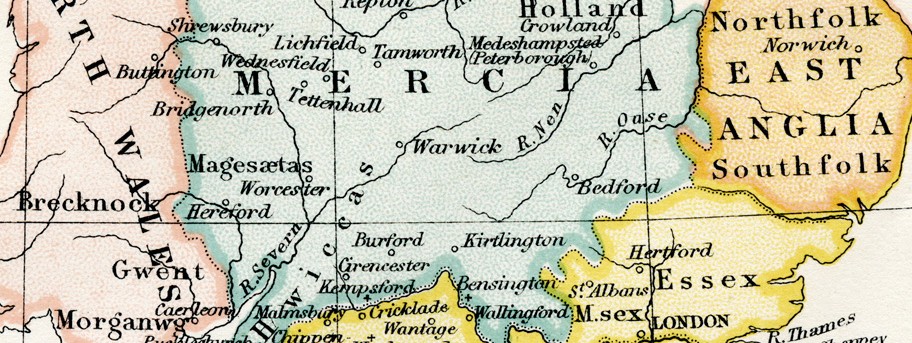The University of Nottingham
 Exchange online
Exchange online
Research Exchange
Weird and wonderful – the origin of English place-names

Melton Mowbray, Kingston Bagpuize, Bourton-on-the-Water — names plucked at random from the English countryside. But what do these and neighbouring names tell us about the history of our nation?
An awful lot, say the researchers at the University’s Institute for Name-Studies. That’s why they’ve developed the Key to English Place-Names, an online resource which gives the history of the place-names of more than 16,000 cities, towns and villages across England.
And there’s even a smartphone app for it, which uses GPS to find out the origins of the place names closest to your current position. Both the web-based Key and app have been developed with the University’s Web Technologies team.
Arranged by county, the Key takes the form of a map which users can click on to find the historical origins of their chosen place-name. A brief moment spent exploring the site reveals for example, that Kirkby Stephen in Westmorland is a village with a church (from Old Norse kirkju-býr) dedicated to St Stephen. Or that Godmanchester in Huntingdonshire means ‘Godmund’s Roman site’, probably referring to the Roman fortification south of the Ouse.
The site breaks down each place-name into the languages of which it’s made. For instance, Coppingford, in Huntingdonshire, is a mixture of Old Norse (kaup-maðr ‘a merchant, a trader’) and Old English ford to translate as ‘merchants’ ford’. Other languages featured on the site include Old, Middle and Modern English, Latin, Old French, Old Norse and Celtic.
Dr Jayne Carroll and Dr Paul Cavill of the Institute for Name-Studies have recently relaunched the Key to English Place-Names, which has its origins in a project funded by the Arts and Humanities Research Council (2004–2005) and has involved 15 academics and IT developers.
“Place is a major part of identity,” said Dr Carroll. “There are very few people who are not interested in what the name of their home town or village might mean. Place-names are a fascinating and unusual way to learn more about your area’s history.
“The names of villages and towns frequently refer to particular peoples, social and administrative activities, landscape, birds and animals, crops and vegetation, and most of them are well over a thousand years old. In other words, they can tell us something important about the history of those places, and how they were perceived, which would otherwise be unknown.”
Download the smartphone app through iTunes.
Tags: Institute for Name-Studies, Key to English Place Names, names, Norse, Old English, place, Viking
7 Comments
Leave a Reply
Other

Top prize for quantum physicist
A University of Nottingham physicist has won a prestigious medal from the Institute of Physics for […]

Zero carbon HOUSE designed and built by students comes home
Design and construct a low cost, zero carbon, family starter home, transport it to Spain, build […]
October 25th, 2012 at 10:50 am
.
What is the name of the app?!
October 25th, 2012 at 11:18 am
Tara
Good point! Will add it back into the story… It’s the Key to English Place Names.
October 25th, 2012 at 11:56 am
Kate Marsden
Your app is only for iPhone and similar. Why do you not have an Android app?
October 25th, 2012 at 12:10 pm
Tara
You’re right, it’s only available for Apple stuff at the moment. Will check with the academic on whether they’re looking at developing for Android and come back.
October 25th, 2012 at 12:27 pm
Eleanor Forward
Great to see the Key being relaunched! I’d be interested in an Android app too.
January 9th, 2014 at 10:20 pm
Jason Luck
Great resource found it via the place names premier league on big heritage
A credit to the University good job.
August 31st, 2014 at 12:33 pm
Andy Exon
Yes please, I would love an android version, to save carrying two phones while traveling.